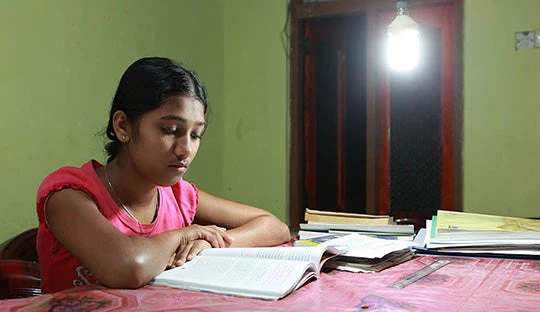Let’s say we are both girls born on farms in remote villages at the foothills of mountains, but you were born at the foothills of the Himalayas and I, somewhere at the foothills of the Swiss Alps. You are the first of five children and I have only one younger sister. What do you suppose our lives growing up would be like?
I have access to a road that leads me to school every day and to hospitals when I need it. I have electricity so that I can do my homework in the evenings and my mother can cook using a clean stove. We have heat. I even have telecommunication services for when I want to talk to my uncle who lives in Nova Friburgo, Brazil. And my bathroom is indoors because it separates us from our waste.
But what about you? The latest evidence from South Asia tells us that you, as the eldest daughter of five siblings, will most likely help your parents care for your younger siblings, and that you will eventually drop out of school because walking to school and back cuts into your chore time. Besides what’s the point of going to a school when it doesn’t have sanitation services? Does your home have them? Or do you have to defecate in the open and hide away during your period? So instead of completing school, you end up marrying at a young age. And you might not know much about contraception due to lack of information and access to telecommunications. So you end up having as many children as your parents – at home because there are no roads to lead you a clinic.
Unfair isn’t it? The opportunities we get as children throughout life are directly determined by the circumstances related to access to infrastructure services. This means that I am more likely to get more out of my education because I can go to school and have time to study afterwards. It means that I am less likely to be exposed to certain illnesses because I have access to clean water and good sanitation. It means my parents have more resources at their disposal to help with household chores freeing me to play with my friends, pursue my hobbies, and prepare myself for life in the big city while attending university.
Perhaps you and your husband will also move to the city. You will have access to more infrastructure services. And despite your lack of formal education, you may learn from your others about proper sanitation and hygiene, the hazards of cooking with firewood, and the need for your siblings in the village to attend school.
Furthermore, by virtue of being in a city, your children will have better opportunities than you did because of more access to infrastructure services early in life.
In the meantime, let’s hope that by the time your siblings are ready for school, the village’s infrastructure has grown to support their needs. Some infrastructure is better than none, as you learned in the city. It is a start toward providing more and better opportunities.
-Participate in the Live Chat
-Read the Feature Story
-Read the Press Release
-Video: The Costs of Unequal Access to Infrastructure
-Video: Prioritzing South Asia's Infrastructure Development
-Read the Full Report (PDF)






Join the Conversation